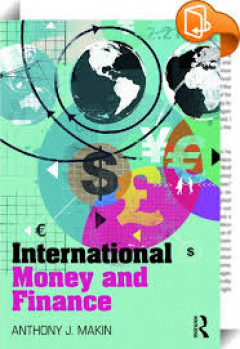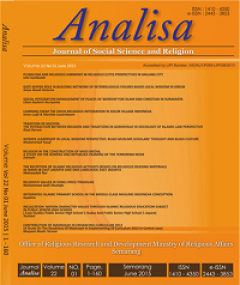Ditapis dengan

The political element in the development of economic theory
- Edisi
- -
- ISBN/ISSN
- 9781138537460
- Deskripsi Fisik
- xiii,243 pages,24 cm
- Judul Seri
- -
- No. Panggil
- U 338.9 Gun p
- Edisi
- -
- ISBN/ISSN
- 9781138537460
- Deskripsi Fisik
- xiii,243 pages,24 cm
- Judul Seri
- -
- No. Panggil
- U 338.9 Gun p

The Political economy of natural gas
- Edisi
- -
- ISBN/ISSN
- 9781138301061
- Deskripsi Fisik
- ii ,198 hlm, 24 cm
- Judul Seri
- -
- No. Panggil
- T 338.2 Fer p
- Edisi
- -
- ISBN/ISSN
- 9781138301061
- Deskripsi Fisik
- ii ,198 hlm, 24 cm
- Judul Seri
- -
- No. Panggil
- T 338.2 Fer p

International political sociology: transversal lines
edited by Tugba Basaran, Didier Bigo, Emmanuel-Pierre Guittet and R.B.J Walker.
- Edisi
- -
- ISBN/ISSN
- 9781138910706
- Deskripsi Fisik
- xiv, 295 pages ; 24 cm.
- Judul Seri
- Routledge studies in international political sociology
- No. Panggil
- U 306.2 Int

The political economy of manufacturing protection
- Edisi
- -
- ISBN/ISSN
- 9781138297715
- Deskripsi Fisik
- xiv, 204, 24 cm
- Judul Seri
- -
- No. Panggil
- U 382.7 Pol
- Edisi
- -
- ISBN/ISSN
- 9781138297715
- Deskripsi Fisik
- xiv, 204, 24 cm
- Judul Seri
- -
- No. Panggil
- U 382.7 Pol

Political view and orientation of the rohis members toward the form of the state
This study aims at describing the model of religious value transmission communication that occurs in Rohis organization as a form of Islamic proselytizing, at viewing the students’ view toward the form of the state government, and at viewing the political orientation of the Rohis members. By using the qualitative approach, this study has successfully gathered the following findings. First, th…
- Edisi
- Analisa, Vol 2,No 2, Desember 2017
- ISBN/ISSN
- 24433853
- Deskripsi Fisik
- ii ,10 hlm, 24 cm
- Judul Seri
- -
- No. Panggil
- J 306.605 Ana

Recent scholarship on ‘Islamic’ discourse : an evaluation and assessment
The events of 9/11 era had a number of dramatic results for ‘Islam’ and the Muslim world; and one such result was a surplus of endeavours through various mediums to conceptualise, hypothesise, and posit an ostensible ‘divide’ between ‘Islam’ (as a religion, ideology, and political system) and Western culture and society. In post-9/11 era, Islam was frequently used as a ‘violent’…
- Edisi
- Analisa, Vol 1 No 1,Juni 216
- ISBN/ISSN
- 25025465
- Deskripsi Fisik
- ii ,10 hlm, 24 cm
- Judul Seri
- -
- No. Panggil
- J 306.605 Ana

Pelaksanaan Pemilihan Kepala Desa Daleman Kecamatan Kedungdung Kabupaten Sampang
This article discusses about a political shari’ah’s view on the implementation of the village’s head election in Daleman-Kedungdung-Sampang. The results of the research conclude that the mechanism of the village’s head election starting from the formation of the committee election, the candidates crawl, the campaign, the voice collecting and counting, and the announcement and the establ…
- Edisi
- Al Daulah Vol 3, No 2, Oktober 2013
- ISBN/ISSN
- 20890109
- Deskripsi Fisik
- ii ,10 hlm, 24 cm
- Judul Seri
- -
- No. Panggil
- J 297.272 Dau

Pengaruh Konfigurasi Politik Hukum Orde Baru terhadap Kompilasi Hukum Islam (…
This article discusses the influence of legal political configuration of the New Order against the Compilation of Islamic Law in Indonesia. Legal political configuration of the New Order was based on Pancasila and the Constitution of 1945 as the basis of its policy to enhance and improve national law. The background formation of KHI is the need for technical justicial Religious Courts. KHI can …
- Edisi
- Al Daulah Vol 4, No 1, April 2014
- ISBN/ISSN
- 20890109
- Deskripsi Fisik
- ii ,10 hlm, 24 cm
- Judul Seri
- -
- No. Panggil
- J 297.272 Dau

Judicial Review Tap MPR RI terhadap Undang-Undang Dasar (UUD) 1945 Menurut Ji…
This article discusses about Jimli Asshiddiqie thinking about of MPR RI judicial review against the Constitution 1945. According to Jimli Asshiddiqie, eighth of Tap MPR/S is must be considered equivalent position with the law, because in our legal system was no longer recognized the existence of law products above the law, even though the form of law not the Consideration, but materially eighth…
- Edisi
- Al Daulah Vol 4, No 1, April 2014
- ISBN/ISSN
- 20890109
- Deskripsi Fisik
- ii ,10 hlm, 24 cm
- Judul Seri
- -
- No. Panggil
- J 297.272 Dau

Kewenangan Jaksa dalam Memulihkan Kekayaan Negara
this article discusses about the authority of the prosecutor in restoring the state’s assets based on Undang-Undang Kejaksaan No. 16 tahun 2004. Such a constitusional authority is in the form of obtainning special authorization from the government agencies as defined in article 30 paragraph 2 of Undang-Undang Kejaksaan. The scope of the authority includes, law enforcement, legal aid, legal co…
- Edisi
- Al Daulah Vol 4, No 1, April 2014
- ISBN/ISSN
- 20890109
- Deskripsi Fisik
- ii ,10 hlm, 24 cm
- Judul Seri
- -
- No. Panggil
- J 297.272 Dau
 Karya Umum
Karya Umum  Filsafat
Filsafat  Agama
Agama  Ilmu-ilmu Sosial
Ilmu-ilmu Sosial  Bahasa
Bahasa  Ilmu-ilmu Murni
Ilmu-ilmu Murni  Ilmu-ilmu Terapan
Ilmu-ilmu Terapan  Kesenian, Hiburan, dan Olahraga
Kesenian, Hiburan, dan Olahraga  Kesusastraan
Kesusastraan  Geografi dan Sejarah
Geografi dan Sejarah